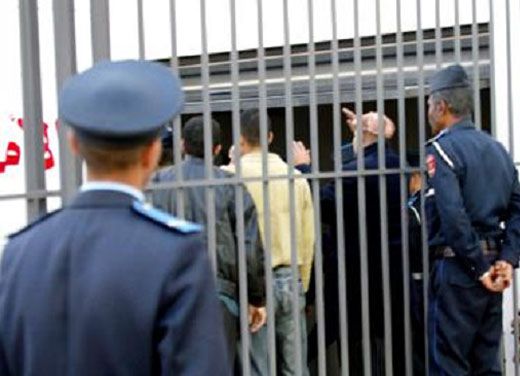
Justin D. Bibee believes that Morocco’s newly implemented Bill 43.22 will alleviate prison overcrowding and resource scarcity, while upholding human rights. Justin thinks that the nuanced sentencing ensures fairness, excluding severe crimes for public safety. He also believes that this aligns with King Mohammed VI’s advocacy for alternative dispute resolution, promoting rehabilitation and contributing to a resilient Moroccan society.
Morocco’s recent adoption of Bill 43.22 on alternative sentencing is a commendable step towards addressing the pressing issues of overcrowding and limited resources in the country’s prison system. This bill marks a significant milestone in Morocco’s commitment to human rights and demonstrates the government’s dedication to finding innovative solutions to complex challenges.
One of the key objectives of this bill is to tackle prison overcrowding, which has long been a concern in Morocco. By implementing alternative sentencing measures, the government aims to alleviate the strain on correctional facilities and create a more sustainable and effective justice system. This approach not only benefits individuals serving sentences but also ensures that the limited resources available can be better allocated to support rehabilitation and reintegration efforts.
The bill also underscores the government’s commitment to protecting individual rights and promoting the principles of justice and fairness. By granting judges the authority to impose alternative penalties, such as community service, electronic surveillance, or restricted rights, the legislation strikes a balance between punishment and safeguarding the fundamental rights of individuals. This approach allows for a more nuanced and tailored approach to sentencing, considering the specific circumstances of each case.
It is noteworthy that the bill aligns with King Mohammed VI’s vision of promoting alternative dispute resolution methods, as articulated in his 2009 speech commemorating the Revolution of the King and the People. The king’s emphasis on mediation, arbitration, and conciliation as means of conflict resolution reflects a forward-thinking approach to justice that prioritizes rehabilitation and social reintegration over prolonged incarceration.
Moreover, the bill’s exclusion of certain crimes from alternative sentencing, such as offenses related to terrorism, human trafficking, and sexual exploitation, demonstrates a commitment to public safety and the protection of society. By reserving imprisonment for individuals who pose a significant risk of reoffending, the bill ensures that the most serious offenders remain incarcerated, while allowing for more appropriate measures for those who can benefit from alternative sentencing.
Morocco’s adoption of the alternative sentencing bill is a laudable step forward in addressing the challenges faced by its prison system. By focusing on reducing overcrowding, facilitating rehabilitation and reintegration, and safeguarding human rights, the government demonstrates its commitment to fostering a more just society. This legislation not only has the potential to transform the lives of individuals serving sentences but also contributes to the broader goal of building a stronger and more resilient justice system, as well as a stronger and more resilient society, in Morocco.


